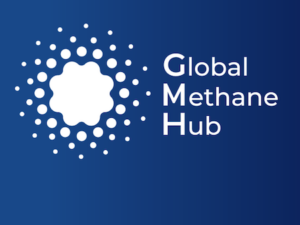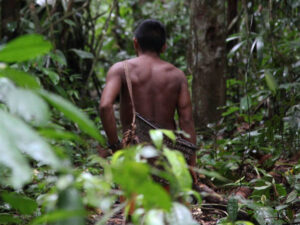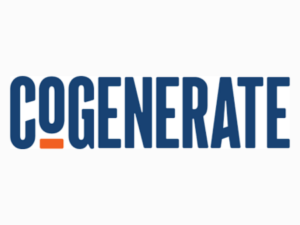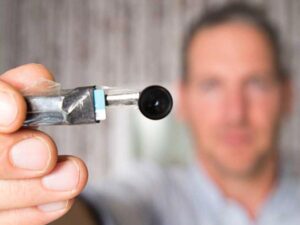Black Fox Philanthropy is a fundraising firm that provides a variety of fundraising services to international NGOs and domestic nonprofits. As a B Corp social enterprise, Black Fox Philanthropy works with organizations that seek to drive lasting social change.
Natalie Rekstad of Black Fox Philanthropy spoke with Catherine Edwards on April 14, 2023. Click here to read the full conversation with insights highlighted.
Catherine Edwards: Could you please introduce yourself, your role in your organization, and then introduce the problem that your work is dealing with?
Natalie Rekstad: My name is Natalie Rekstad. I’m the founder/CEO of Black Fox Philanthropy. The problem we exist to solve is often the number one pain point for the majority of NGO leaders: fundraising. They didn’t get into their work because they like to ask for money, or have the tools or knowledge, or anything along those lines. It’s also a capacity issue when there are so many hats these leaders wear, and fundraising is just one piece
Compared to the giants here at the Skoll World Forum, I have a tiny checkbook to solve important social problems, particularly SDG [Sustainable Development Goal] 5, gender equality. I was frustrated by the lack of funds invested in many of the issues I care about, and didn’t have the personal resources for the deep and lasting change I craved on a global scale.
My strategist brain outperforms my wallet, so I started Black Fox Philanthropy as a B Corp social enterprise to fill a key need in this sector. We’re most known for being an “outsource development department” of sorts, freeing up leaders to do what’s uniquely theirs to do, while we’re behind the scenes serving as an extension of their team, including taking on their email addresses to engage funders on their behalf. We exist to resource these leaders, not only financially, but to also set them free from the quantity and quality of time it takes to develop relationships that result in meetings and/or an invitation to submit a grant proposal. Often 50% to 75% of their role is fundraising, so we can relieve them of a great deal of that burden.
It is a key role in the ecosystem. I get vicarious trauma, so I can’t do the frontline work they do, but can still serve in a vital and powerful way. We have an extraordinary team of fundraisers based all over the world, so cultural fluency often allows us to map to the needs of these leaders.
Catherine Edwards: It sounds like the problem has two sides to it, partly that the organizations maybe don’t have the capacity, or it doesn’t make sense to move their capacity to fundraising, and also the problem of the funds making their way to the right organizations. Can you talk more about what exactly you are doing, what are the steps you take in this work?
Natalie Rekstad: Our work is highly prescriptive. We do what is needed at varied inflection points. For example, if they come to us and say, “Our pipeline is drying up.” Great, we will do funder candidate research and provide 15 to 20 deeply aligned funders. Or maybe they say, “We don’t know how to tell the story in the way that really lands in the hearts, minds, and wallets of funders.” This is particularly true for academic institutions.
Bringing in a comms team to be able to work with academics is tricky because of the often deep attachment to the technical aspects of the work. There’s a journey to getting them to a place where they’re making it easy for the funder to say, “Yes, I do want to know more,” and then giving them the tools, the assets, the coaching, so they can show up in a strategic and thoughtful way that gets to that next level, that deeper level goal that is, ideally, money in the door.
We’re the only firm in the world that I’m aware of that uses a model of an outsourced development department. The model evolved through several iterations by listening to and focusing upon what the sector needed. We made many mistakes along the way, but stayed the course in refining it to the model it is today.
As the founder, I wish I had thought of the model many years ago, but we’ve now struck upon something unique that we laser focused upon through COVID, when we needed to pivot to rapid-action money in the door services for the NGOs that were in SOS situations. Literally, some NGOs we began working with when the pandemic hit were services that were a matter of life or death in their communities. I don’t say that gratuitously; it’s the reality of the organizations we serve. We serve clients who are working on solving all 17 of the Sustainable Development Goals (SDGs).
Strategically, I like to think about SDG 5: Gender Equality. If we can get that one over the finish line first, the rest of the SDGs will fall like dominoes more quickly. But we work with all SDGs, bringing that same talent and ferocity to bear. We match team members based upon their own passion areas. It could be the environment. It could be clean water, education, any number of things.
The DNA of the company is focused upon what I hope is the future of work, which is professionals who don’t want to, or can’t, work 40 – 60 hours a week anymore because they desire family and life balance. As parents, we want to be at the school play, make lunches, take our kiddos to sports games and cheer them on. The DNA of the company is centered around families and the inherent need for flexibility; we hope to be a model that demonstrates this can work. In particular this helps the team live fully expressed lives in their professional capacities.
Catherine Edwards: You mentioned that, during COVID, there were a lot of people who needed instant grants. Since it sounds like you’re not the one giving the money any more; how did you do that?
Natalie Rekstad: Good question. Well, I am still a funder but that’s not a hat I wear in the context of Black Fox Philanthropy. We’re doing a rebrand in the Fall because we need to unhook from that perception. With COVID and how we responded, first we’re already B Corp. We exist to serve NGOs who famously haven’t enough funding to deliver their impact at scale. We’re open source. We’ve been open source since the very beginning, so everything that we do from a paid engagement, we strive to make available to the sector via trainings or written guidance. It’s significantly plug and play, absolutely everything we think about and do. There are NGOs who respond with, “That’s awesome, but we just want you to do it,” and then others who say, “We have no money for this.” So our reach from that open-source lens has been incredibly powerful.
I heard about a woman who said, “I’m so happy to meet you in person. Your training on “Leading the Donor Dance” was game changing. I was going to ask a funder for $100,000, but instead, through this choreography, my ask was informed by the funder and they gave a million dollar gift!” The trainings are designed with a ‘plug and play’ script, but you make it your own. It’s exciting and gratifying that, even if we’re not working together in a paid engagement, that as one woman, one set of hands, one checkbook, I can have far more impact.
The theory of change has proven itself out far more than I ever could have imagined, and the leaders we get to serve absolutely blow us away. If you’re in it for ego or glory, you get spit out pretty quickly because it’s so hard. It has to be uniquely yours to do, and you’re in it for all the right reasons and for the long haul. The leaders we get to serve are phenomenal, so I feel it’s a sacred place in the ecosystem, and we absolutely treat it that way.
Catherine Edwards: You gave that really interesting example of the almost indirect impact that you’ve had. I wonder if you have any other examples of the people you’ve worked with and the impact you’ve had?
Natalie Rekstad: I created a children’s book, The Secret Adventures of Anonymouse, and a woman out of the UK called and asked for it for her global organization, Think Equal. I said, “Yes, of course. And who are you?” It’s an SEL curriculum [Social-emotional learning curriculum], endorsed by the UN, the Dalai Lama, the late Sir Ken Robinson, Meryl Streep, and others. When we were talking I asked if she needed fundraising. We ended up doing an engagement, and within six to eight months, they had over a million dollars of resourcing through Omidyar Foundation and other funders as well. As a result, they were able to go into countries that they couldn’t afford to go into, because they too are open source.
Stories like that remind me why our work matters so much and how high the stakes are. With Think Equal, the premise is if you can be taught hate at home, you can be taught love at school. And it came out of the documentary film, India’s Daughter. The filmmaker, Leslee, who’s the founder of Think Equal, ended up going into prisons to talk with the gang rapists. Leslee had thought they were illiterate and ignorant, and that’s why they did what they did. But then it was the lawyers that she interviewed, the educated class, who forcefully stated their misogynist views, such as, “If my daughter was riding alone or with a boy on a bus at 9:00 PMm I would put her in the middle of the family compound, and set her on fire with gasoline.” Leslee realized then that it was cultural. This hate is actually taught, and these social norms are so harmful.” Resourcing a mission like this has powerful potential to shift norms within one generation because it is Early Years education, teaching the heart, not just the mind.
Tostan is another client out of West Africa that works to eradicate female genital cutting and child marriage. A few years ago, at Skoll, I produced an event for them for a film that was being released by Holly Carter’s Bykids in conjunction with Tostan. Producing that event, we don’t know the impacts we’re able to have. I can give data on money that comes in, but then there’s so much more that’s intangible. And we don’t know what funding comes through after the engagements, in six months or 18 months or beyond.
We had one client, READ Global, say they were doing a return on investment analysis of all the consultants that they had hired. They did the research, and the very first engagement that they looked at was Black Fox Philanthropy. They had discovered that with just the funder candidate research called Painless Prospecting, one of our least expensive offerings, they had secured $500,000 a year, times three years, $1.5 million from just one funder.
We’ve noticed that the clients who come to us, for the most part, are either in some level of pain around fundraising or ready to go to the next level of impact, but need the money to get there. In many cases, from a programmatic perspective, they can absolutely go to the next level, but they’re hamstrung around fundraising, or the cycle of urgency in fundraising that leads to burnout. It’s fantastic that we are the helpers to the helpers and get to play in this space in such a meaningful way.
We focus upon capacity building. We’re not a dependency model. We want them to be self-sustaining and graduate past us with proper support along the way. We’re doing all the early heavy lifting and infrastructure-building so that they can really run with it. Our job is to put ourselves out of business every time a client can move past us.
Catherine Edwards: You said before that you’re the only ones in the world doing this. I was wondering what kind of insights or lessons you’ve learned that others who want to get into this work could learn from?
Natalie Rekstad: We’re the only one that I’m aware of after all these years doing this in this way – the “outsourced fundraising department” model. At its core fundraising is highly relational by nature. Yes, there are a lot of technical skills and artistry that go into it with research and messaging, but at the end of the day, we’re all human, and funders also have a hero’s journey. Our deepest passions often spring from our deepest wounds, so they’re very often in the mission with a level of heart and ferocity as much as the NGO leaders. It’s important to honor and respect that because being treated like a walking dollar sign is incredibly off-putting and ineffective in engaging anyone.
The biggest thing that I would share that could shift things enormously is how the NGO leaders go into those conversations with funders, taking their full space in the room, owning their worth and trusting in their own North Star. When they’re going into those meetings, if they’re going in with a dynamic of, “You’re a funder. We need money. You’re up here, and I’m down here,” you’re actually creating a dynamic most funders want nothing to do with. Kevin Starr from Mulago Foundation wrote an article in 2016, but I still reference it, called The Pitch is Dead: Long Live the Conversation. It’s about going back to that human level, understanding the funder’s journey, and why they care as deeply as you do about the mission.
If I could impart one thing and shift how we relate to each other as we’re moving in this space, it is that the NGO leaders should truly take up their full space in the conversation as the equals that they actually really are, recognizing they are coming at the solution from a different angle, but that it is as valid and vital as the funder in the conversation.
Catherine Edwards: Do you have examples of what that can look like, maybe if a NGO wasn’t sure if they’re achieving that or still creating this dynamic? What does it look like when you’re doing that?
Natalie Rekstad: Funders come alive when we’re working with other people who are coming alive in the work. When you’re coming at it as, “I’m spraying you with a pitch. I’m reading cues that you’re going walls up, so I’m going to tap dance even faster. But now I’m on eggshells, tap dancing faster.” You get farther and farther away from each other when, instead, you could show up in that conversation differently and see each other with humanity and curiosity. It may or may not be yours to do together, but at least embodying your own dignity and self-respect is an important piece in how you are showing up in the relationship, and what you have to offer
I’m not saying that some gatekeepers aren’t on ego trips or that it’s always 100% clean. There’s also fundraising as BIPOC, so I’m not sweeping some things under the rug, but I do know that, for the most part, the funders in my community want no part of an unhealthy power dynamic. They want to be in relationship, and feel the trust. Are we going to move the trust a millimeter, an inch, or go the distance now, really leaning in? a Or am I feeling the need to lean away?
Catherine Edwards: You mentioned before that, over the years, you’ve been honing your expertise and learning from things that have gone wrong. I wanted to ask a bit more about that because we know that sometimes we learn as much from things that didn’t work. Do you have examples of something that didn’t work that you learned from?
Natalie Rekstad: It goes back to our hiring practices now. Based on the work of Adam Grant, the book Give and Take, there are givers, takers, and matchers. The matchers are like, “Okay, it’s a transaction; scratch my back and I’ll scratch yours.” The most successful people AND the least successful are the givers; it depends upon boundaries and discernment, which can take some people years to develop, hence being the most successful, but later in their careers. Takers are like a cancer within the organization, no matter how talented. I think I went into this space thinking, “You’re a good egg because you could be doing so many other things for far more money, and yet here you are in the impact space.” That’s actually not true. Some people do come at it from ego or other drivers, ambitions that have everything to do with their rewards.
We have a term called WIIFM in philanthropy, “what’s in it for me”? That was some very hard learning. There’s a Harvard Business Review article about how one person, even in a gigantic organization, can take down a company. We’ve financially teetered in the past because Black Fox Philanthropy is about integrity and accountability, and we’ve had a few team members fail in this in the past. And Integrity and accountability can be expensive. Repair is expensive. So we have been in the red in the past but it was a choiceless choice all stemming from Black Fox Code. I’m grateful I was able to weather the storms, but it took a toll.
Now our screening and hiring practices are centered upon the work of Adam Grant, Give and Take, and Black Fox is heaven on earth for the givers. We look for those coming to us with a deep desire to not only deliver with excellence and be with kindreds, but also to create community and connectedness with the clients. Many of us have worked solo or in silos, and remotely from all over the world, so building that culture and community is wonderful, and makes all the difference in how we show up in the work and with each other
Through COVID, one of the things we did was respond to the call, we doubled in size within weeks. The demand was so great, but we didn’t have the infrastructure to handle it. Looking back, I don’t know if I would have said no to what was coming to us, because there were serious SOS situations and NGOs were shuttering their doors without rapid and effective support. But it was painful and expensive after that rapid growth to retrofit infrastructure to be where we are today. Now at last, this is the year of excellence and ease.
It’s been some hard learning. I’m wired as an entrepreneur, so my appetite for impact is large, but I’m not an operations person. So getting the right people in the right role was key because it wasn’t sustainable for me to be doing so much. We’re going on 10 years, and there are other impact opportunities that I’m excited about.Black Fox will be the anchor to my kite for that, now that we’re flowing in excellence and ease and able to say yes to other extraordinary opportunities.
Social entrepreneurs are optimistic by nature. My favorite saying for many years was, “The impossible just takes longer.” I don’t know if it’s still my favorite saying, but it definitely is a big part of our DNA because these are massive problems, and we’re showing up anyway, and we’ve gotten some things wrong. Then we’re learning and iterating, while in community.
The Wellbeing Project did an entire summit in Bilbao in 2022 on Wellbeing for Social Change because we famously burn hot, and then burn out because the stakes are so high. Now, the huge mainstream conversation is how do we take care of our leaders in a way that we can sustainably keep doing the work and showing up for each other, and ideally in connectivity and community.
Catherine Edwards: How do you measure the success of your own organization? Do you have metrics and targets?
Natalie Rekstad: Absolutely. As a B Corp, we’re obligated to measure the benefit to people and the planet while generating profit. But getting a B Corp certification, it was our DNA anyway, so it was just a matter of documenting everything. Two out of three we’re awesome: Planet and People. Profit, not so much as we work to recoup significant investments made last year in infrastructure. But we are moving in that direction because what we’re interested in next is R&D. We have something called Black Fox Brief that’s an offering to the sector that could potentially be the Huffington Post of the impact sector, so we’re eager to explore that.
The other thing that we do is a fellowship called Black Fox Fellows. It’s women of color on the funder side of the table. It could be mid-level or C-suite. What we’re trying to do is change the face of philanthropy by having women of color in these convening spaces showing up as the powerful change agents they are, but also working to get them to greater positions of power, influence, and decision making. In fact, there are four Black Fox Fellows at this conference. We want them in more positions of power, influence, more decision making roles because they’re more likely to invest in effective proximate leaders. They’re investing thoughtfully and strategically in communities of color and more.
There’s so many different ways we approach it, open source, Black Fox Brief, which has the capacity to do much more for the sector, and Black Fox Fellows. And then, of course, we exist to serve NGOs as execution partners and as that outsource development department, as they strive to get the money they need to do their work in the world.
Catherine Edwards: What are the main challenges that you’re facing on the way to achieving this? What are the main challenges right now?
Natalie Rekstad: For a time, it was the ability to hire outstanding people. Through COVID, we had talent come to us as really extraordinary fundraisers and communications experts and researchers who had lost their jobs due to the pandemic, so we were able to have a home for this incredible talent. It was contractor based, so they weren’t full-time roles. As COVID was continuing to unfold and resolve to some extent, some of the folks were getting rehired into full-time roles so we were losing some great talent we very much wanted to retain. The good news is that we use the ‘future of work’ model that puts women and families first, so we’ll get upwards of 500 applicants for one role because people know that’s how we think about things. I was the working mom, now I’m an empty nester, but there is a sense of this being a home where we care about you as a whole person.
Through the influx and then a bit of the exodus, the challenge was how do we replace such talent with more extraordinary humans with this model of work? With COVID, people did start being digital nomads and working remotely, so our virtual model ended up being a bit ahead of its time. We were Zoom based long before COVID hit, which is why we’re able to have a rapid action response. But it was tricky in the in-between times because we had hired some people who weren’t the best fit. Our hiring practices hadn’t been fully honed yet.
We just did a company retreat and part of what we did was we watched a Beyonce performance, and afterwards we did a meditation with Justin Michael Williams on Insight Timer, that is about bringing the thunder like Beyonce. We turned the word Beyonce into a verb, such as, “You Beyonce’d that engagement,” or “you Beyonce’d that team meeting”, or whatever. When we interview people now, we’ll tell the story of the retreat, and then ask, “Who is someone that you admire or would like to emulate, and why? Which of their qualities sing to you?? It can be Beyonce, but who is it? It could be Roger Federer, or it could be a musical artist; it could be any number of people.” Sometimes it’s actually Beyonce, which is great. But what we’re seeking is understanding what their idea of excellence is, what they value, and the demonstrated values inherent in the response. So really getting to know their heart, why they care.
The stories that come out of that interview question have turned out to be so rich, so even before they start at Black Fox Philanthropy, we have a sense of what inspires them to get into the impact space in the first place. By the time they get to me, I’m the fourth or fifth interview, and it’s more of culture fit and feeling into it. It gives a glimpse into their heart, what makes them come alive. And if they use words like ferocity and commitment and contribution and things like that, we know chances are high we have a giver. We want to be in community with other extraordinary people because we have something really sacred and unusual that doesn’t exist out there, yet the sector needs keenly.
One thing that I got dreadfully wrong was I thought the future of work was the sole embodiment of feminine leadership, and it absolutely is not. Without the ‘masculine’, such as boundaries and infrastructure, it’s actually harmful to the company and to the team because you need the banks of the river to hold the water in. My core belief is the future hinges upon a more just and gender-balanced world, and if we can solve SDG 5 first, equality, all the other SDGs will fall like dominoes more quickly. I was going to lead by example. What I found was this was not the case. Without the balance of the masculine and the feminine, it’s a recipe for folks feeling unclear and unsafe. I thought I was giving this beautiful offering of trust and support, but it was actually not creating safe space through infrastructure and clear expectations. And worse, takers emerged who exploited a culture of care and generosity
With many clients we serve, it literally can be life or death, like female genital cutting, for example, or pandemic response. Or being a child bride or trauma response for post-war regions where rape is used as a tool of war. So the fact was that without those traditionally masculine structures, I created an environment where takers could push boundaries in a way that was harmful to other team members, certainly myself, but also the clients. It was that naivete of, “You’re a good egg because you’re here.” That was a huge learning for me and we cleaned that up through the Shingo Model, which is an incredible organizational excellence tool. We hired a consultant and now the infrastructure, the checks and balances,the excellence, and the ease, it’s really amazing.
Catherine Edwards: Looking to the future, what’s coming up in the next five years? How do you see the work evolving?
Natalie Rekstad: We keep paying attention to the sector, how it’s evolving, shifting, changing, and responding to what the NGO leaders need, and also how the funder landscape is evolving. We work with funder grantee cohorts to help them be self-sustaining, so we see our work moving more to partnering with large foundations, or even family offices, to serve their grantee portfolios so that it helps build capacity. So it’s also paying close attention to what the funders need and helping them serve their grantees in strategic and effective ways that go beyond funding. It’s listening to the NGO leaders about how their pain points shift, change, and evolve, and responding to that through the fundraising lens.
That’s the beauty of traveling with clients or hanging out as friends and meeting up in different parts of the world. This is an organic, fluid way to find out about pain points related to fundraising. I’m so relational, I get to hang out with these beloved clients who become friends. It helps me to be in community with these leaders, to listen.
My biggest frustration through the years of Black Fox Philanthropy is we work primarily with institutional funders. And that’s the money that would be in the space anyway, so aren’t we just moving money around? This was a thorn in my side for years. Now, we have more intention around mobilizing greater resources into the hands of proximate leaders in the Global South through client curation. That’s a really key lever that got me very excited. I have this appetite for more impact and more opportunity that’s available to me because I am in these relationships, and I’m also in the gorgeous rare air, also as a funder in some spaces. I’m listening from all sides and working to be perceptive and responsive.
Catherine Edwards: How are you working to advance systems-level change in the field?
Natalie Rekstad: As a philanthropist, some of my greatest funding has gone to the Global Center for Gender Equality, which is absolutely systems-level change. It’s the number one lever I found to bring that about far more quickly. I’m also a member of Women Moving Millions, a collective of extraordinary funders who aren’t just writing checks and then disengaging. They’re in it. They’re sleeves up, boots on the ground. So I get to be in community with these really extraordinary, 99.5% women, who are fierce and in the work and always thinking about systems-level change and going upstream.
I wrote a paper, I think it was 2019, about systems-level change and cited all these examples of organizations that were getting it right, and many were clients of ours. I’m going to shine a light upon this just for the sector to go, “Aha, they’re doing it right. This is how they’re doing it and this is how they’re thinking about it.” Shining a light upon systems-change done right is an important role of ours because we go into the engines of these organizations. We know what’s working and what’s not working because we’re in these sessions of communications, reviewing the data, and writing the grant proposals. It’s gorgeous when we get to participate in bringing about systems-level change.
We’re in this extraordinary situation where we sit between the funders and the NGO leaders and can be a kind of translator. We can cross-pollinate in a way where we can then write a paper or invite others to collaborate, and things along those lines. That really excites me, to get to be in this unique role that can have so much more impact.
Catherine Edwards: Is there anything you think is needed from other actors in the space in order for the systems-level change to happen? Is there something you see that’s missing at the moment?
Natalie Rekstad: I think the main thing is a level of authenticity, humanity, and curiosity. I know they’re buzzwords, but if we’re not dropping into heart space and feeling into the trust of each other, we’re not going to take the bigger risks together. This takes some pretty big risks and getting it wrong and getting your nose bloodied, but then getting back up again and applying the learnings. That’s why the Inner Development Goals are as vital as the Sustainable Development Goals. Evolving ourselves and our level of consciousness is a core ingredient to being able to evolve as a collective, to being able advance as a species. That level of trust and authenticity and real talk is vital to being able to take some of those bigger risks and to break apart structures that no longer serve us. But we need to feel safe and seen to lean into the opportunity, and let’s face it: It’s still not safe in many realms because we have people in positions of power and privilege who have little interest in ‘power with’.
‘Power over’ has served them well, or so they think. In fact, I have tenderness for those who live small inner lives. From one lens you can argue they are victims of their era, and have missed so much of the point of getting to be here. We have this incredible opportunity. It’s this extraordinary new era of possibility for women and girls, in particular, as old structures are breaking apart. I love how the conversation around divine feminine rising and smart and fierce women’s voices being heard above the din.
Fathers of daughters are some of the fiercest warriors of all for gender equality, they hold up the other half of the sky, so getting men into the conversation is vital as well. But we can’t “get there from here”; we can’t get there without core internal shifts that include excavating our inner patriarch and unconscious biases. Not everyone is willing or even remotely interested in doing this work. I know it’s a systems-change question, but again, my personal strategy is around resourcing the women leaders, and they can help lead the way. It’s a power with versus a power over. It’s not that it’s women’s turn. Again, I got that wrong. It’s that, together, we can move things forward in such a powerful way. Though the world is ready to a great extent, we’re kind of in the ugly bits where structures are coming apart, but I have so much hope for what I’m seeing, the communities I’m in and the ferocity and the leadership, particularly the men alongside the women.
Catherine Edwards: Thank you so much for sharing your insights and the work you do.
Click here to read the full conversation with insights highlighted.
Catherine Edwards is a journalist and content strategist based in the UK, having also lived and worked in Germany, Italy, Sweden and Austria. She supports newsrooms and mission-driven organisations with content strategy, audience development and constructive journalism.
* This interview has been edited and condensed.
Find other organizations working to fund social change.







